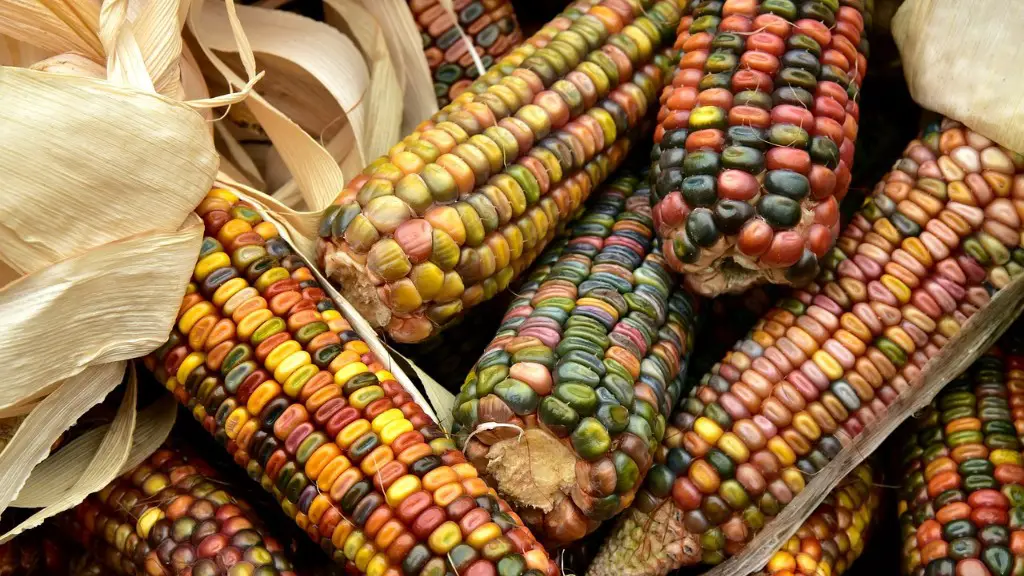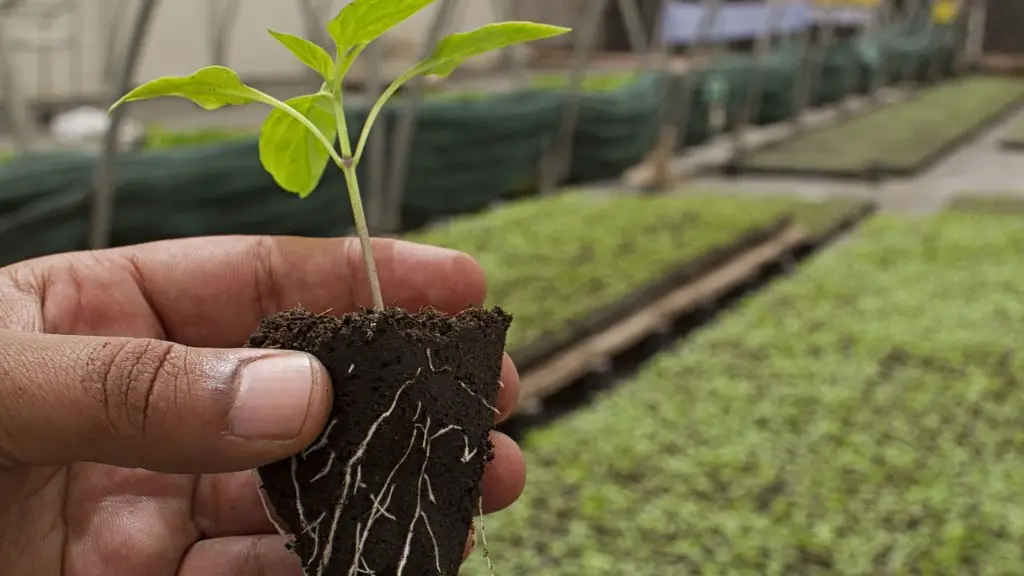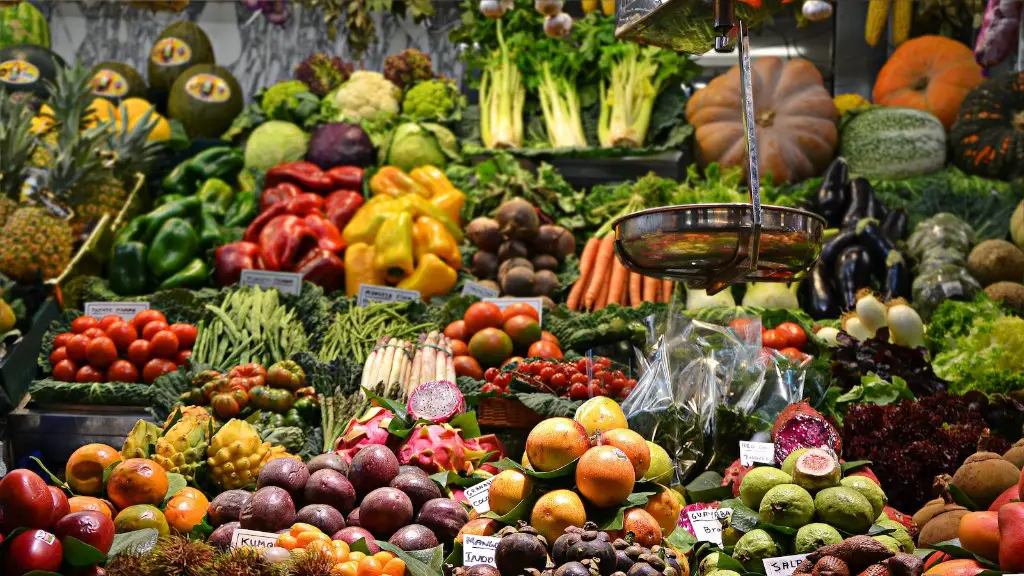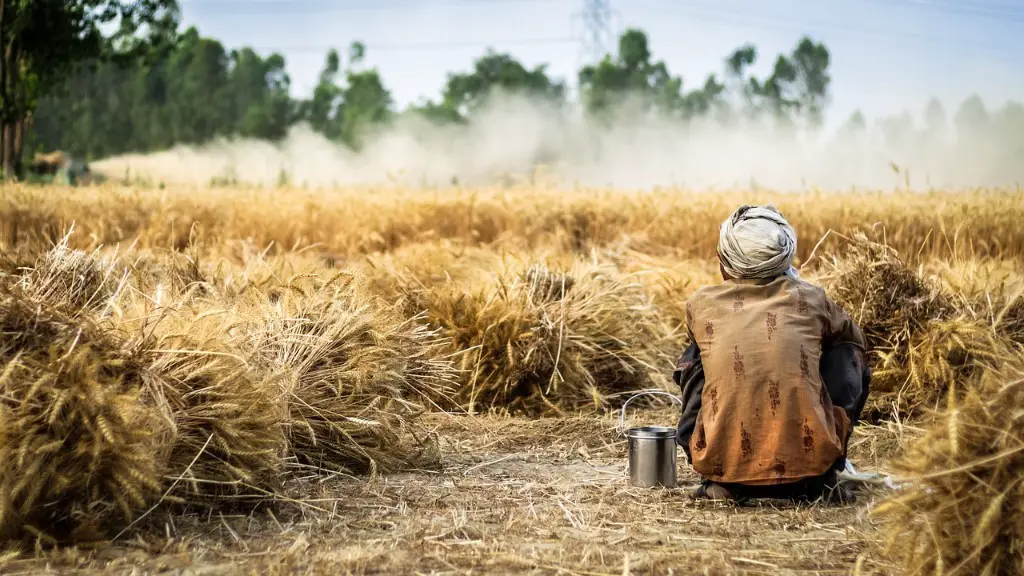Sustainable agriculture is an ecologically sound and economically viable way of producing food and fiber. It is a system of producing food that conserves natural resources, sustains the environment, and is economically just and socially equitable.
The main impact associated with sustainable agriculture is a reduction in the negative environmental impact of traditional farming practices. Sustainable agriculture generally involves using fewer chemical pesticides and fertilizers, and more organic methods such as crop rotation and planting cover crops. These practices can help to improve soil health, reduce water pollution, and promote biodiversity.
What is the impact of sustainable farming?
Sustainable agriculture is not only important for preserving the earth’s natural resources, but also for the environment. Sustainable agriculture helps maintain soil quality, reduce erosion, and preserve water.
The basic goals of sustainable agriculture are environmental health, economic profitability, and social and economic equity. These goals are sometimes referred to as the “three legs” of the sustainability stool.
Sustainable agriculture is an approach to food production that is based on three key principles:
1. Environmental health: Sustainable agriculture production must be based on an understanding of ecosystem services and the need to protect and enhance natural resources.
2. Economic profitability: Sustainable agriculture production must be economically viable, providing farmers with a fair return on their investment.
3. Social and economic equity: Sustainable agriculture production must provide benefits for all people involved in the food system, including farmers, workers, consumers, and the larger community.
What are 3 benefits of sustainable agriculture
There is a need to increase profitable farm income, promote environmental stewardship, and enhance quality of life for farm families and communities. Increasing production for human food and fiber needs is essential to meeting these goals.
The goal of sustainable agriculture is to meet society’s food and textile needs in the present without compromising the ability of future generations to meet their own needs. This can be done by using practices that protect and enhance the natural resources that agriculture depends on, such as soil, water, and biodiversity. It also means producing food and fiber in a way that is economically viable and socially just.
What is the main impact of agriculture?
Agriculture is the leading source of pollution in many countries. Pesticides, fertilizers and other toxic farm chemicals can poison fresh water, marine ecosystems, air and soil. They also can remain in the environment for generations.
In order to protect the environment, it is important to reduce the use of pesticides and other toxic chemicals in agriculture. There are many ways to do this, including using more environmentally friendly products, rotating crops, and using natural pest control methods.
Sustainability is important for businesses because it improves the quality of our lives, protects our ecosystem and preserves natural resources for future generations. A sustainable business is one that takes into account all aspects of its operations, from manufacturing to logistics to customer service. By taking a holistic approach to sustainability, businesses can make a positive impact on the world around them.
What are 4 sustainable agriculture practices?
There are many sustainable agriculture practices Farmes can adopt to make their farms more environmentally friendly, efficient, and profitable. Some of these practices include rotating crops, planting cover crops and perennials, reducing or eliminating tillage, applying integrated pest management (IPM), integrating livestock and crops, adopting agroforestry practices, and managing whole systems and landscapes. By implementing some or all of these practices, farmers can greatly improve the sustainability of their farms.
The term “sustainability” is often used to refer to the three key elements mentioned above; economy, environment and society. In other words, sustainability is the ability to maintain a certain level of economic activity while protecting the environment and ensuring social equity.
There are a number of different ways to approach sustainability, but one example of a sustainable agricultural system would be a system that is profitable while having little or no impact on the environment. In addition, such a system would also have a social licence, meaning that it enjoys the support of the community in which it operates.
What are the four types of sustainable agriculture
Sustainable agriculture is an approach to food production that is environmentally friendly, socially responsible, and economically viable. Numerous sustainable agriculture practices have been developed over the years, and more are being continuously developed.
The 16 most promising sustainable agriculture practices are:
1. Organic Farming
2. Agroforestry
3. Natural Farming
4. System of Rice Intensification
5. Precision Farming
6. Conservation Agriculture
7. Crop Rotation and Intercropping
8. Cover Crops and Mulching
9. Integrative Pest Management
10. Beneficial Insects
11.Companion Planting
12.Green Manures
13.Composting
14.Biodynamic Farming
15.Permaculture
16.Urban Agriculture
Sustainable agriculture is a type of farming that focuses on producing long-term crops and livestock while protecting the environment. Sustainable agriculture has many benefits, including reducing costs, preventing pollution, saving energy, preventing soil erosion, being animal-friendly, promoting biodiversity, and improving food production with less waste and public health.
What is sustainable agriculture answer?
Sustainable agriculture is a type of farming that is done in a way that meets the current needs of society for food and textiles, without compromising the ability of future generations to meet their own needs. Sustainable agriculture is based on an understanding of ecosystem services.
Sustainable farming methods are those that protect and conserve natural resources, support the health and wellbeing of farmers and farmworkers, and provide safe and healthy food for consumers. Renewable energies and energy efficiency in agroindustry systems are key components of sustainable farming. Solar irrigation, geothermal heating and drip irrigation are examples of renewable energies that can be used in agroindustry systems. Crop rotation is another important sustainable farming method that helps to improve soil health and productivity, reduce pest and disease pressure, and conserve water and other resources.
Which is the best definition of sustainable agriculture quizlet
Sustainable agriculture is a way of growing food that ensures that enough food is grown, that farmers can earn money to make a living, and that conserves resources. This definition is based on three key pillars: environmental stewardship, economic viability, and social equity.
Farmers have a unique opportunity to protect and enhance the environment and natural resources. They are able to do this by using management practices that protect the economic viability of their operations. When farmers adopt these practices, they are not only protecting the environment, but they are also ensuring that their farms will be economically viable in the future.
What are some benefits of using a sustainable agriculture system quizlet?
There are many benefits to using a sustainable agriculture system. The natural environment and resources are maintained, farm families are provided a secure living, and the quality of life is enhanced for farmers and their families. All of these factors contribute to a more sustainable and enjoyable lifestyle for everyone involved.
Agriculture is a land use and every land use has an impact on the environment. Some of the key environmental impacts of agriculture include: soil erosion, water pollution, climate change, and deforestation.
Soil erosion occurs when the soil is disturbed by farming activities and is not able to recover. This can lead to decreased crop yields and degradation of the land.
Water pollution from agriculture can come from a variety of sources, including pesticides, fertilizers, and animal waste. This pollution can contaminate drinking water and impact aquatic ecosystems.
Climate change is caused by a number of factors, including agriculture. Agriculture contributes to climate change through activities like deforestation, methane production, and nitrous oxide emissions.
Deforestation is often a result of agriculture, as farmers clear land to make room for crops or grazing animals. This can lead to habitat loss and fragmentation, as well as climate change.
Conclusion
The impact of sustainable agriculture is far-reaching and touches many aspects of our lives. It is an approach to food production that is environmentally friendly, socially responsible and economically viable.
Sustainable agriculture is associated with a number of positive impacts, including improved soil health, reduced water usage, and decreased reliance on synthetic inputs. In addition, sustainable agriculture often results in higher crop yields and a smaller carbon footprint. These benefits allow sustainable agriculture to play a key role in mitigating the effects of climate change.





